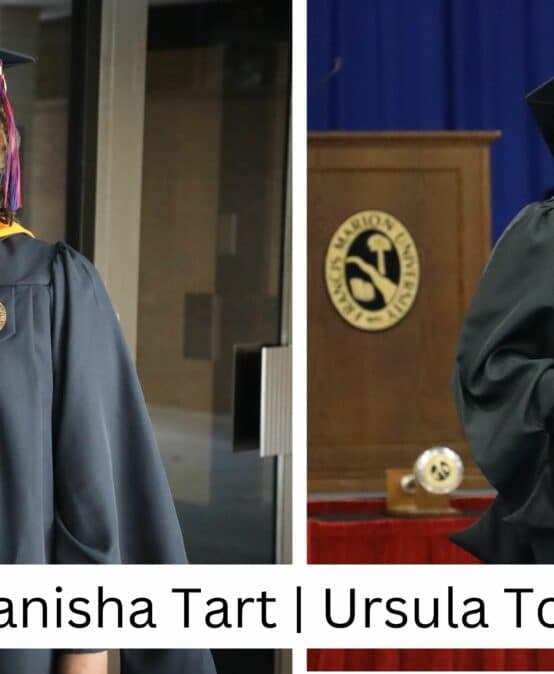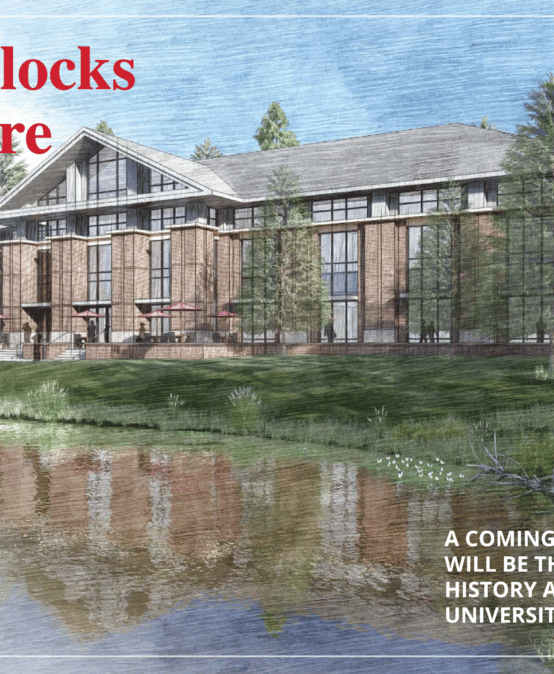April 15, 2023
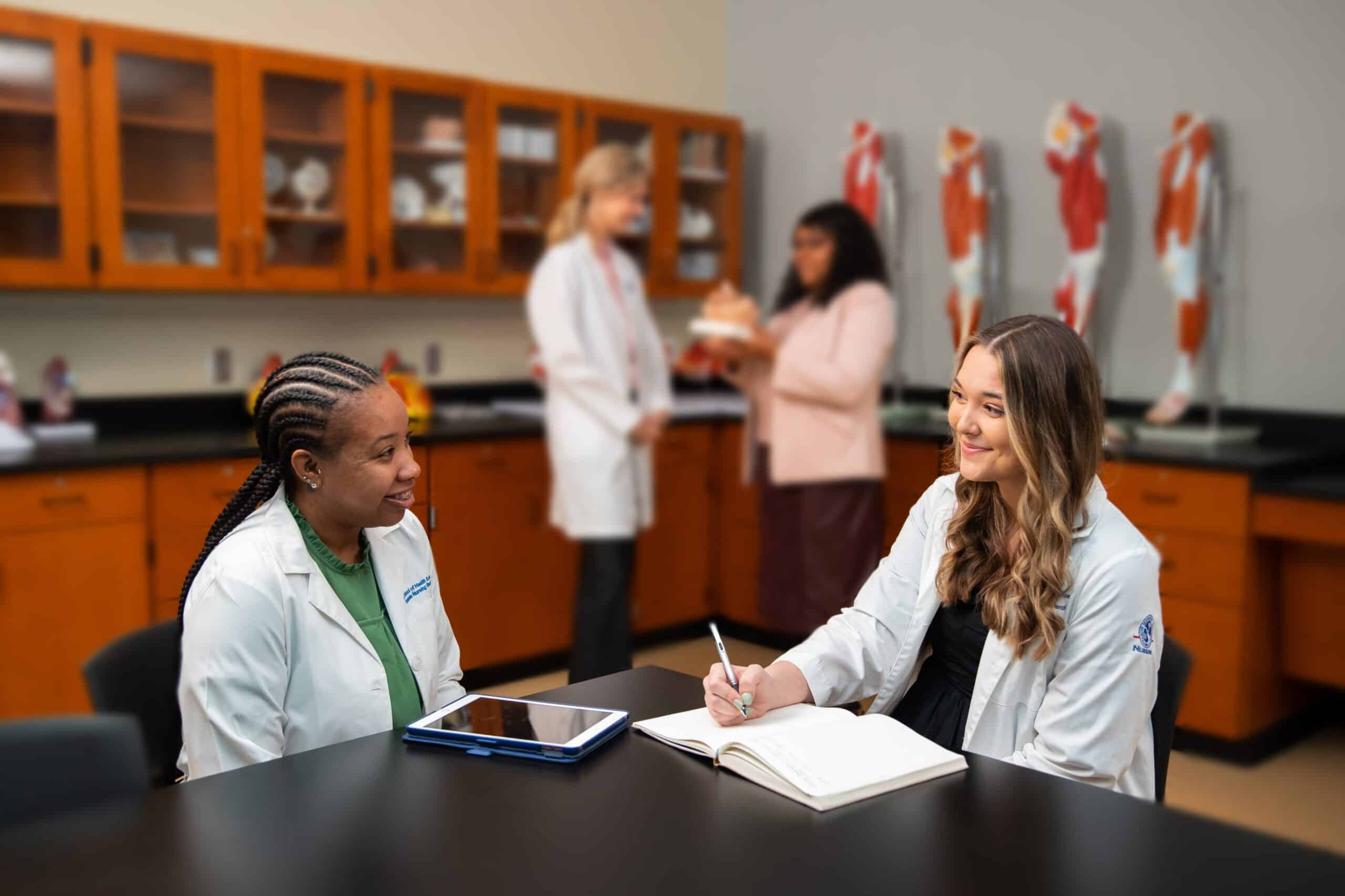
FMU & the Health of the Community
FMU & the Health of the Community
By Tucker Mitchell | March 2023 | FMU Focus Magazine Spring 2023
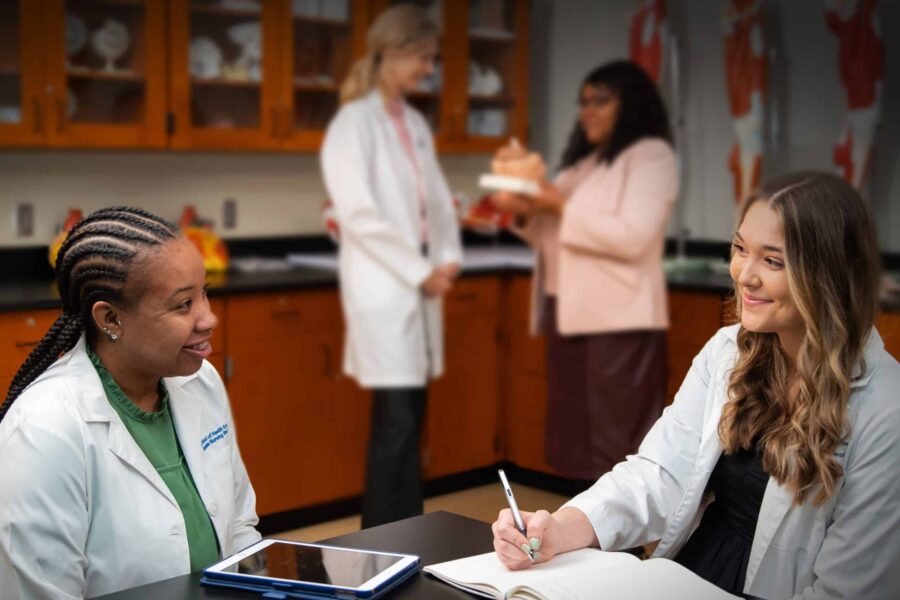
Francis Marion University’s investment in the health of the Pee Dee community is as old as the college itself and as deep as the namesake river that runs through it. For more than 50 years, FMU has trained critical providers and served as a critical catalyst for improving healthcare in this part of South Carolina.
But this is only the beginning.
Building on the momentum of the past decade, FMU is now poised to assume a markedly bigger role in supporting the dramatic acceleration of healthcare in the region. The university is at the center of two new initiatives, the Pee Dee Health Consortium and the creation of a regional mental health center, that will transform the quality and quantity of care available to residents of the Pee Dee.
“The years ahead, the next decade, are going to be remarkable,” says FMU President Dr. Fred Carter.
“New programs, new cadres of young women and men matriculating towards professional healthcare degrees, new partnerships, all aimed at bringing the highest possible healthcare to a region that so desperately needs it. It’s going to be an amazing time. I can’t wait to see it unfold.”
In this special report, we’ll take a look at the progress of the new initiatives and their connection with FMU’s fast-growing programs in the health sciences.
A NEW MODEL FOR BEHAVIORAL HEALTH
South Carolina’s new plan calls for beefing up treatment options at the regional level. FMU will play a critical role as a new behavioral health model is developed in the Pee Dee.
Delivering effective behavioral health care across its wide spectrum of need is an issue that has dogged South Carolina and the nation for years. It’s a complex problem made more challenging by an accelerating awareness of the magnitude of behavioral health needs. Behavioral health is not an isolated issue. One way or another, it affects millions and millions of lives.
That’s the bad news.
The good news is that South Carolina’s Department of Health and Human Services (DHHS) is on the precipice of launching a new system for the delivery of behavioral health care. Plans have been made and funds set aside to launch the new program. The pilot will be located in Florence, S.C., and Francis Marion University will play a pivotal role in its implementation and long-term success.
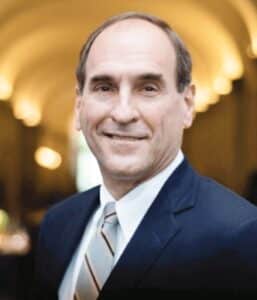
DHHS Director Robert Kerr
DHHS Director Robby Kerr says the Florence initiative will be centered on a new regional behavioral health hospital in Florence. The proposed new behavioral health hub will have 60-plus inpatient beds and include access to outpatient behavioral health services as well. DHHS hopes this innovative behavioral health hub can serve as a model that can be replicated in other regions of the state in the future.
“The hospital alone will address a significant need,” says Kerr, “but along with it we are diligently working to pull together a system of crisis management and community assistance. We want to put these beds out there — that’s important — but what we’d really like to do is keep people out of those beds.”
“To help do that we’ve committed $35 million statewide of grant funding to help acute care hospitals avoid having to warehouse patients in regular hospital beds,” says Kerr. “We’ve also launched a school-based mental health initiative to help our schools serve as an early detection system and provide direct access to early intervention in the form of quality mental health counseling services. These efforts and our work in the Pee Dee work together to provide resources and a more integrated behavioral health delivery system. If we can get the model to function as we think it can in the Pee Dee, we’ll be in a good place. Each region is different, but there are a lot of similarities that will help us as we move forward.”
Kerr says the Pee Dee was chosen because it is a region with the largest need in this area. State surveys show it has by far the lowest number of behavioral health beds of any region in the state with a per capita inpatient psychiatric bed ratio of just one per 6,983 residents. That’s well above the recommended bed per capita average of one to 1,667. He also points to the ongoing advocacy of the late Sen. Hugh Leatherman of Florence. Leatherman championed the behavioral health hospital for years and his many former colleagues in the state legislature are determined to make sure his legacy dream comes to fruition.
Kerr says the goal is for the new hospital to be built within the next 24 months. The final site selection process is almost done and partnerships have already been developed with both of Florence’s large hospital providers, the Medical University of South Carolina-Florence, and McLeod Health.
Other partners are in place as well, says Kerr. DHHS has tried to involve everyone, from schools, to emergency medical service providers, to the “988” suicide hotline. One innovative aspect of the plan calls for giving 988 workers access to scheduling software for behavioral health partners in the region. They could set up appointments, if appropriate, while on a call.
“We’re trying to cover as many bases as we can,” says Kerr.
Francis Marion University is an important partner, too, although in a different way. The university is not a direct provider of community health services, but as is so often the case, is involved in a number of ways that have moved, and will continue to move, the project forward.
Dr. Fred Carter, FMU’s president, has served on DHHS’ statewide mental health task force that has helped develop and facilitate the pilot program, and has also played his customary role as a community leader who helps bring others to the table.
FMU may play an even bigger role in the future when the hospital and other elements of the new regional model are up and running. The university’s rapidly expanding School of Health Sciences will be counted upon to provide new behavioral health practitioners. That is an absolutely critical need, says Kerr.
“If there is an Achilles Heel for anything we’re doing, in the mental health area or otherwise, it’s lack of workforce,” says Kerr. “But that’s especially true in this area and it goes right up the chain from frontline personnel, to nurses and nurse practitioners, to psychologists and psychiatrists. We’re going to build 60-some (behavioral health) beds in the Pee Dee. That will happen. Now we’ve got to figure out how we’re going to staff them. We’re working on that and what’s going on at Francis Marion is going to make a big difference.
“There’s great need and tremendous potential for the programs that FMU has developed, and is developing, to fill it,” says Kerr. “And while I know FMU’s focus is providing professionals in the Pee Dee, I really think what they’re doing could spill out across the state. It almost has to…”
FMU just graduated its first class of Psychiatric Nurse Practitioners in December. The new Psychology Doctorate program is well down the developmental pipeline and could begin as early as next January.
“Those programs,” says FMU’s Carter, “provide exactly the kind of professionals needed to operate these new programs, in addition to psychiatrists and some others. They’d be principal caregivers…
“FMU has a long history of stepping up to meet the needs of this community, particularly in regards to health care and health services,” says Carter. “And we’re ready to do it again.”

PARTNERING FOR BETTER HEALTHCARE
Pee Dee Consortium aims to bring more providers to the region. FMU, MUSC, USC partner to enhance health education.
The first step in improving the health care opportunities for any community is to improve the quality of its healthcare providers.
A big part of that in many South Carolina towns and counties is simply increasing the quantity of providers.
Study after study has shown that much of South Carolina is “medically underserved” when it comes to providers; meaning, in other words, there aren’t enough certified nurses, nurse practitioners, doctors, technicians, and assorted other specialists to go around. Those studies also show that the Pee Dee Region, where some counties are completely devoid of doctors, is in the worst shape of all.
With that in mind, local leaders, including the late senator Hugh Leatherman of Florence, Dr. Eddie Floyd of the Drs. Bruce and Lee Foundation, Former Mayor Stephen Wukela, and FMU President Fred Carter, among others, began work almost a decade ago to address this issue, especially as it relates to medical doctors. Their efforts resulted in the State of South Carolina creating a new medical and health science collaboration, the Pee Dee Medical and Health Sciences Education Consortium. The presidents of the Medical University of South Carolina, the University of South Carolina, and Francis Marion University serve as its board of directors.
The Consortium, as it is known, now has a full head of steam, and more than $30 million in its coffers, and is busy funding and coordinating new educational initiatives that will recruit more physicians and health science professionals for the Pee Dee Region.
USC has been sending third- and fourth-year medical students to Florence since 2017, when the partnership between USC and FMU first began. The students use FMU facilities in downtown Florence for the classroom portion of their work while at the same time completing their clinical rotations at local hospitals, medical clinics, and practices.
Supported by consortium funding, USC is now expanding its Florence-based program, and MUSC is set to join it. Third- and fourth-year students from MUSC will begin studies and rotations in Florence in 2024 or 2025.
During the next two to three years the number of students completing their basic medical education in Florence is expected to more than double, to 60-70 students per year, and that number could climb appreciably in the future.
At the same time, both MUSC-Florence and McLeod Health have launched feasibility studies — again, funded by the Consortium — focused on starting or expanding post-graduate medical residencies at regional hospitals. New physicians will be employed as resident physicians at hospitals for specialty-oriented training. The length of a residency varies by medical specialty.
McLeod Health has hosted family practice residents for a number of years. MUSC is looking to begin a program focused on obstetrics and gynecology and internal medicine.
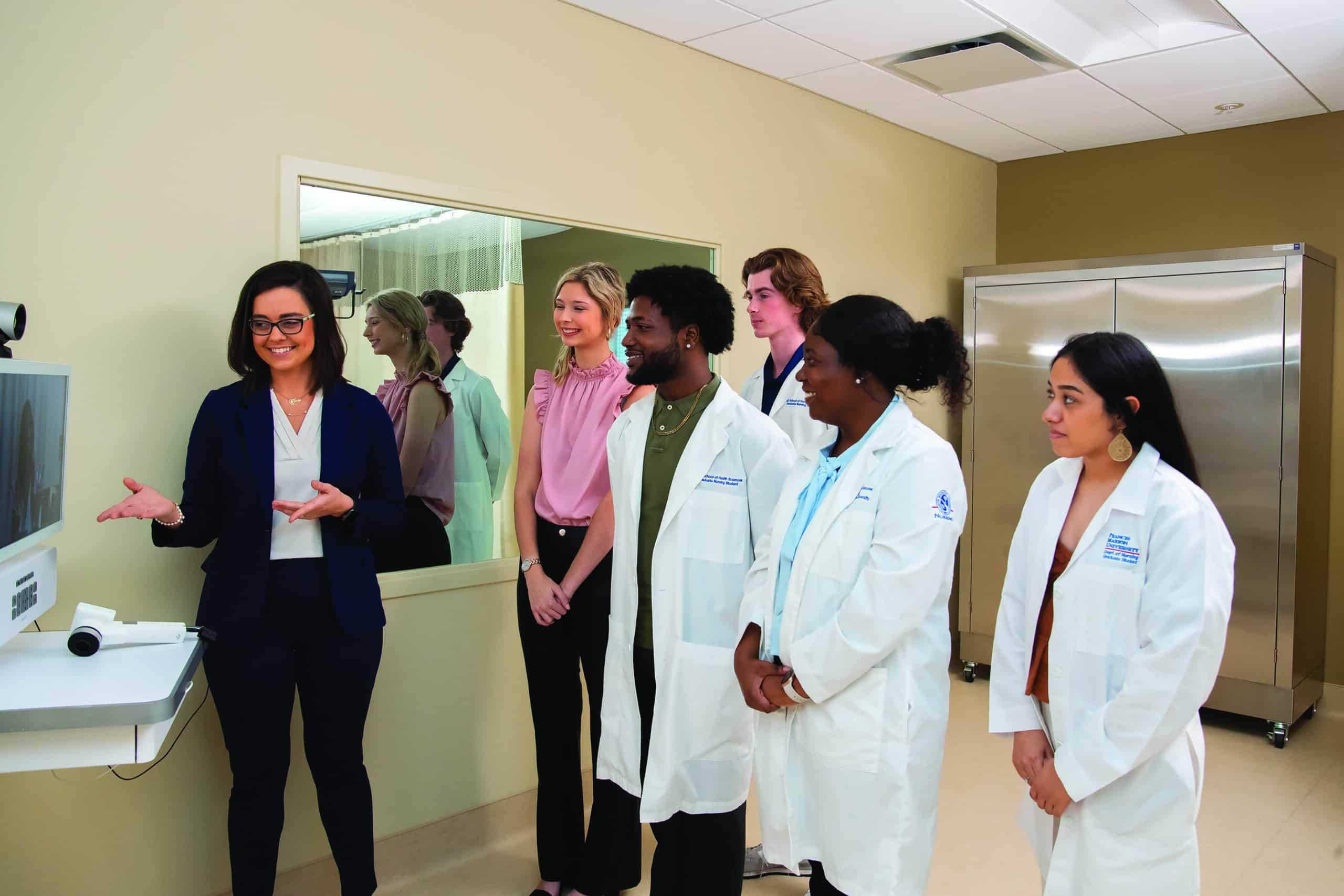
The programs will likely continue to grow in the future. Some additional hospitals in the region could join in as well.
The point of training these new physicians in the Pee Dee is to retain them permanently. Studies show what common sense also supports: physicians frequently remain employed in the area where they acquired their residency training.
“Physicians, nurse practitioners, and other health professionals who complete their education in the region become comfortable with the facilities and people here, and understand the need here,” says FMU’s Carter. “Many choose to build their career here when the training is complete.”
The existing program involving third- and fourth-year students from the USC School of Medicine has already delivered returns on the program’s promise, especially in terms of those students from the Pee Dee area choosing to come home to complete their studies.
The Consortium funds, acquired through ongoing appropriations from the South Carolina legislature as well as contributions from the Drs. Bruce and Lee Foundation, support many of the administrative costs of the program. They also provide the students with housing stipends.
The state legislature has also appropriated money for the construction of a new medical education facility for these medical students in downtown Florence. It will be located at the site of the old Circle Park School.
The state-of-the-art facility will provide study, lecture, clinical, and administrative space for the medical students. Eventually, some of that space will be shared by students in allied health care programs being delivered by FMU.
FMU’s School of Health Sciences is expanding at a rapid pace to meet the need for regional, state, and national providers. FMU’s renowned nursing program has been a critical provider of nurses since it opened on the FMU campus in the early 2000s. FMU has launched nine new health care education programs in the past decade, and more are on the way.
The university has built or refurbished two new buildings downtown to accommodate those programs, the Carter Center for Health Sciences, and the Hugh and Jean Leatherman Medical Complex. They have plenty of capacity now, but as the programs grow, more will be needed.
About the Consortium
The Pee Dee Medical and Health Sciences Education Consortium (PDMHSEC) is a non-profit organization composed of the University of South Carolina, the Medical University of South Carolina, and Francis Marion University.
The Consortium was created to increase the presence and scope of healthcare providers across the northeastern quadrant of South Carolina, primarily establishing and expanding graduate medical and undergraduate medical, nursing and healthcare education programs in the region. The organization’s initial focus has been clinical placement opportunities for third- and fourth-year medical students, medical residents, and graduate healthcare professional students, but is expected to expand both programmatically and geographically (that is, throughout the region) in the future. The Consortium’s mission includes:
- Providing funding for proposals to advance healthcare education in the Pee Dee Region (stipends for undergraduate medical students, support for medical education, studies and start-up expenses for medical residencies).
- Supporting a cooperative approach to establishing and expanding medical and graduate health science education in the Pee Dee Region.
- Collaborating with regional healthcare providers to expand capacity for medical and health science education.
The presidents of the three universities serve as its executive board. The top academic and financial administrators of the universities involved also serve in various administrative capacities. All initiatives of the Consortium must be approved unanimously by the three presidents.
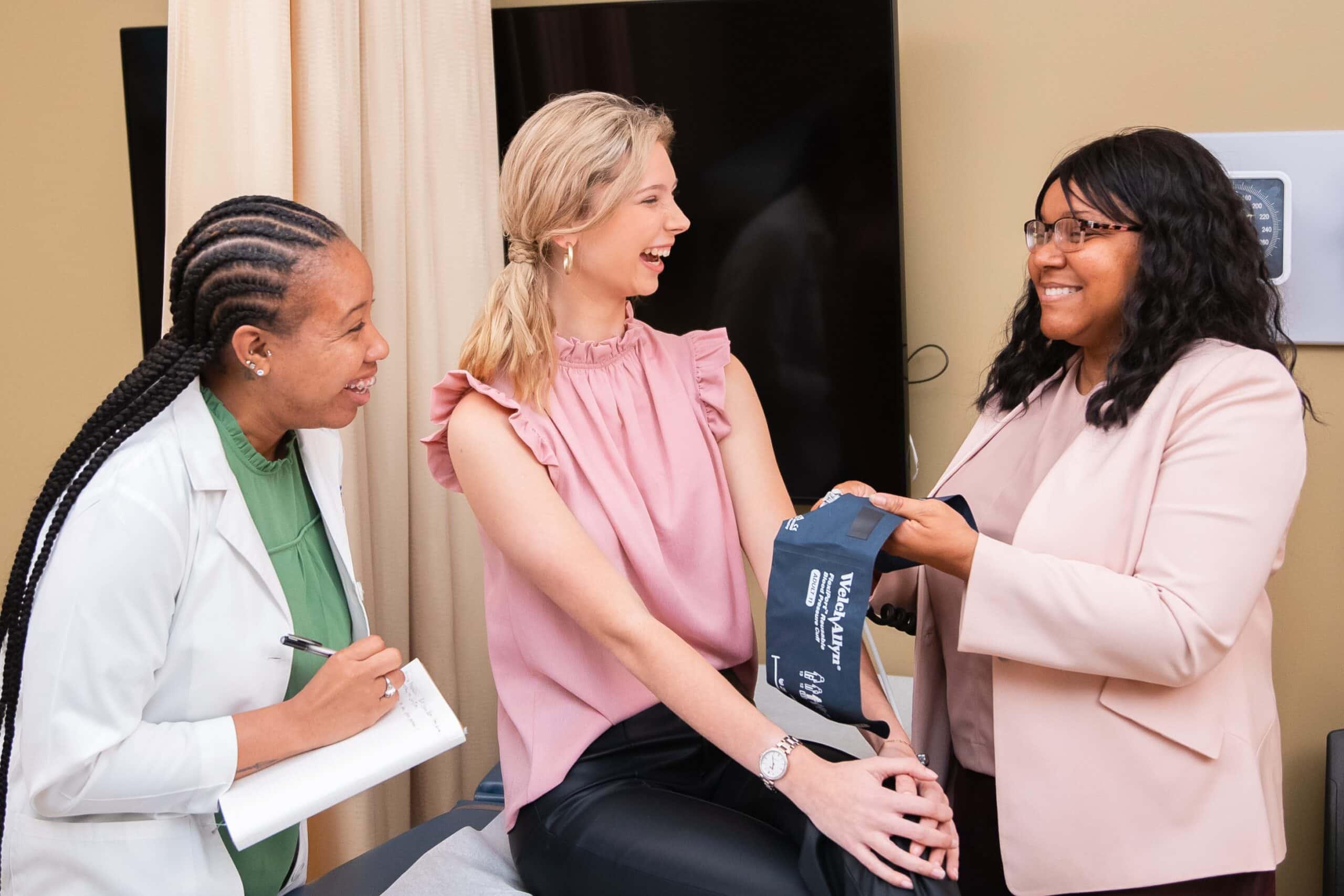
FMU School of Health Sciences
Francis Marion University’s School of Health Sciences offers more than a dozen programs for educational degrees in the healthcare field, with more in development. The School has grown quickly since its founding in 2016. Allied programs in psychology, including the new Psychology doctoral degree, are offered through FMU’s Department of Psychology. Here’s a look at the health sciences programs currently offered at the school:
Nursing
- Bachelor of Science in Nursing (BSN)
- RN to BSN Program
- MSN Family Nurse Practitioner
- MSN Nurse Educator and Post-Master’s NE Certificate
- MSN Psychiatric Mental Health Nurse Practitioner
- Doctor of Nursing Practice (DNP)
Occupational Therapy
- Occupational Therapy Doctorate Program (entry-level)
Speech-Language Pathology
- Master of Speech-Language Pathology (MSLP)
Healthcare Administration
- Bachelor of Science in Healthcare Administration (BS)
- Healthcare Executive Management
- MBA with Concentration in Healthcare Executive Management**
**–Offered in conjunction with FMU School of Business
For more information: www.fmarion.edu/healthsciences/
